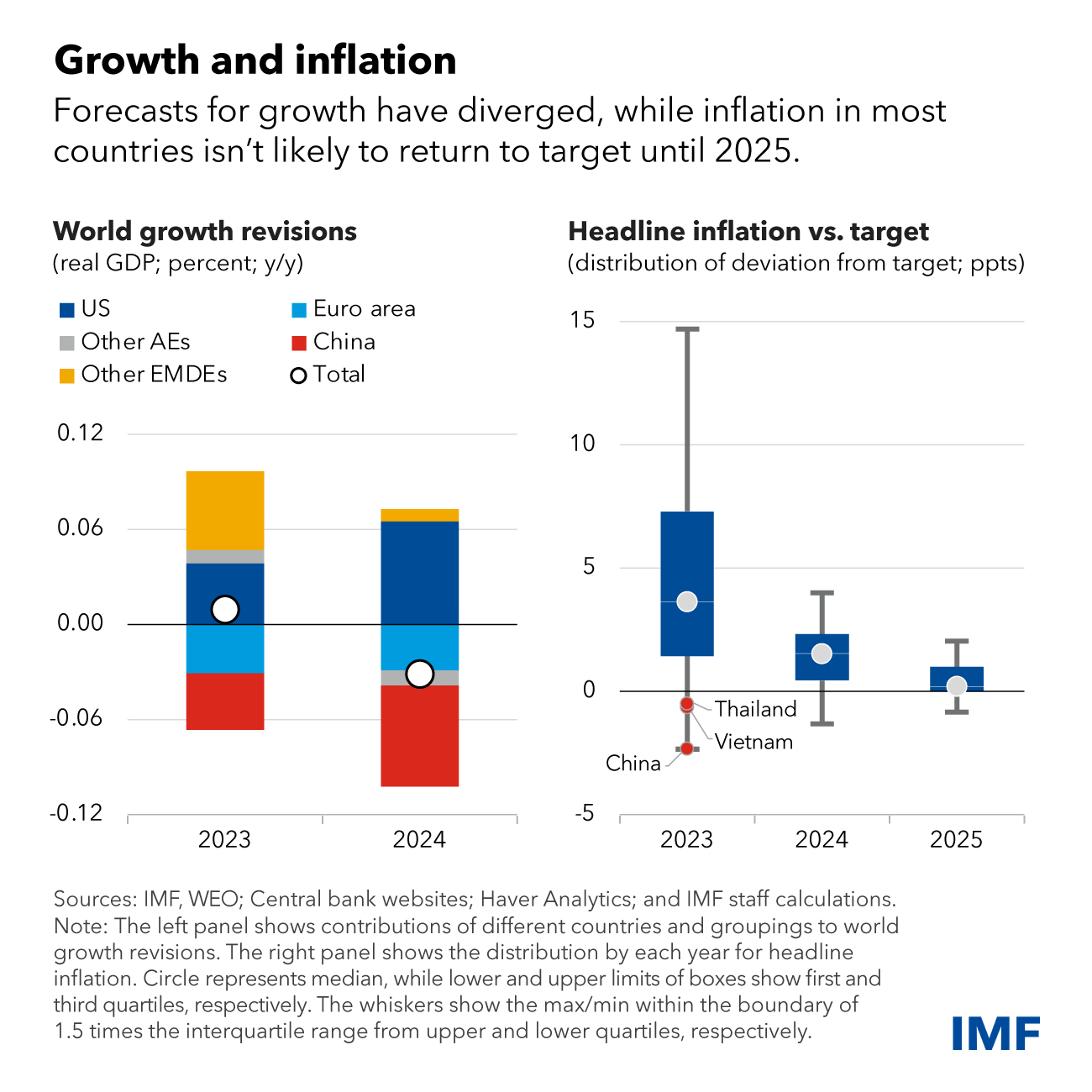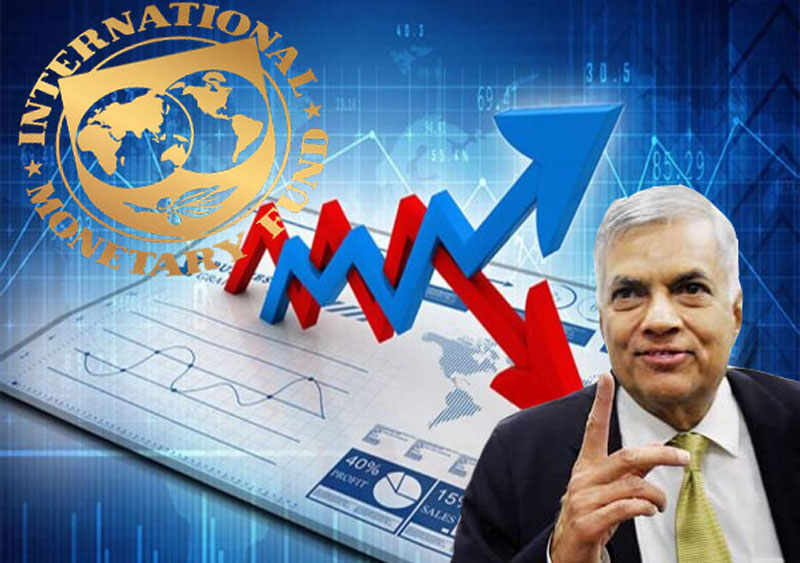The much awaited World Economic Outlook of the International Monetary Fund will be released on Tuesday (10).
However, Sri Lanka’s projections for 2023–28 are excluded from publication owing to ongoing discussions on sovereign debt restructuring.
The analysis and projections contained in the World Economic Outlook are integral elements of the IMF’s surveillance of economic developments and policies in its member countries, of developments in international financial markets, and of the global economic systems.
“In a more global perspective, Pierre-Olivier Gourinchas, Economic Counselor and Director of the Research Department, IMF stressed that structural reforms at the right time are key, and the first generation of reforms will help unlock more growth based reforms.
On Sri Lanka, Daniel Leigh, Division Chief, Research Department, IMF pointed out that Sri Lanka must continue with its sustained reforms, and current reforms have started to bear fruit.
He went on to note that despite securing some degree of stability, full recovery for Sri Lanka is still not assured.
At the same time, the World Economic Outlook of the International Monetary Fund reports that the baseline forecast is for global growth to slow from 3.5 percent in 2022 to 3.0 percent in 2023 and 2.9 percent in 2024, well below the historical (2000–19) average of 3.8 percent.
Advanced economies are expected to slow from 2.6 percent in 2022 to 1.5 percent in 2023 and 1.4 percent in 2024 as policy tightening starts to bite.
Emerging market and developing economies are projected to have a modest decline in growth from 4.1 percent in 2022 to 4.0 percent in both 2023 and 2024. Global inflation is forecast to decline steadily, from 8.7 percent in 2022 to 6.9 percent in 2023 and 5.8 percent in 2024, due to tighter monetary policy aided by lower international commodity prices.
Core inflation is generally projected to decline more gradually, and inflation is not expected to return to target until 2025 in most cases.



